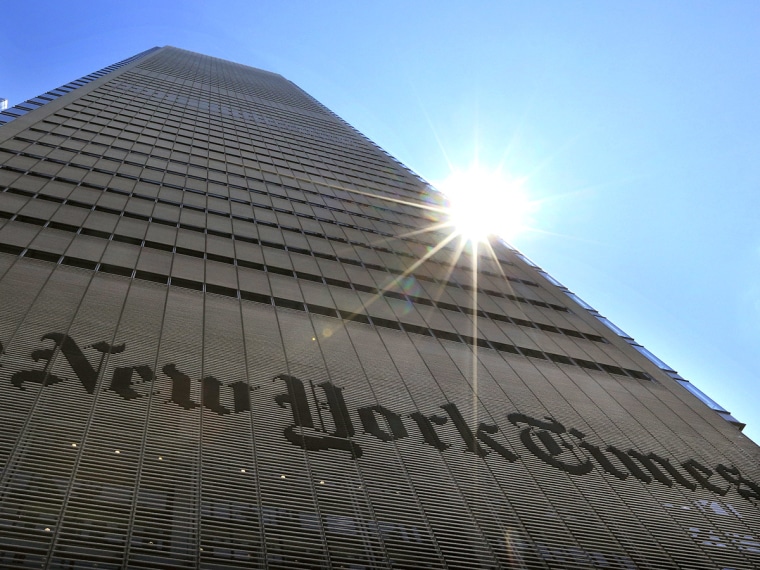During a campaign rally last night in Montana, Donald Trump echoed a familiar refrain, lashing out at American news organizations. "I mean, you look at the Washington Post or the New York Times, I can never get a good story," the president said, playing the role of the victim. "I mean, you look at this horrible thing that took place today, it's really -- is it subversion? Is it treason?"
Earlier in the evening, Trump made related comments, but without phrasing his concerns in the form of a question.
In an interview with Fox News conducted in the arena before his speech, Trump accused The New York Times of "virtually" committing "treason" by publishing an opinion piece in which a senior administration official wrote that many of Trump's aides are "working diligently from within to frustrate parts of his agenda and his worst inclinations."In the interview with "Fox and Friends," which is set to air Friday morning, the president blamed the paper."Number one, The Times should never have done that," he said. "What they've done, virtually it's treason."
It's really not. As we discussed yesterday, "treason" is a specific, legally defined thing. It refers to "levying war" against the United States or providing "aid and comfort" to an enemy of the United States.
Publishing an op-ed from a senior official in the executive branch, who believes the president is unbalanced and unfit for the office, is certainly provocative, but no sane person could reasonably make the case that it's treasonous.
But the fact that Trump keeps using words despite not knowing what they mean is a fairly minor issue. The more unsettling realization emerges in context: a president with authoritarian tendencies is comfortable accusing newspapers of "treason" for publishing opinion pieces he doesn't like.
That's not OK.
What's more, it keeps coming up. Circling back to our previous coverage, in June, the president was so bothered by media coverage of his summit with North Korea’s Kim Jong-un that he described the reports as “really almost treasonous.”
In January, he falsely accused a pair of FBI officials of having committed treason. A month later, while whining that Democrats failed to applaud his State of the Union address to his satisfaction, the president said “they certainly didn’t seem to love our country very much” – and then raised the prospect of Democratic “treason.”
There is, of course, a common thread: Trump seems to equate criticism of him as some kind offense against the state. It's not just that he doesn't know the actual definition of "treason," it's also that he wants to expand the definition to include disparagements he doesn't like.
And what, pray tell, does the president believe should be the punishment for such "virtually" treasonous behavior? Trump hasn't said.
I can hardly wait for him to expound on the subject.
